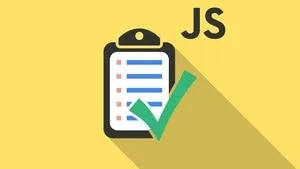This plan includes
- Limited free courses access
- Play & Pause Course Videos
- Video Recorded Lectures
- Learn on Mobile/PC/Tablet
- Quizzes and Real Projects
- Lifetime Course Certificate
- Email & Chat Support
What you'll learn?
- They can make their code more flexible, reusable and maintainable
- Refactor existing designs to use design patterns
- They will learn with different scenario where then can apply the design patterns for the solutions of complex problems
- Reason about applicability and usability of design patterns
Course Overview
Course Overview:
This course provides an overview of all the Gang of Four (GoF) design patterns as outlined in their seminal book, together with modern-day variations, adjustments, discussions of intrinsic use of patterns in the language.
What are Design Patterns?
Design Patterns are reusable solutions to common programming problems. They were popularized with the 1994 book Design Patterns: Elements of Reusable Object-Oriented Software by Erich Gamma, John Vlissides, Ralph Johnson and Richard Helm (who are commonly known as a Gang of Four, hence the GoF acronym).
The original book was written using C++ and Smalltalk as examples, but since then, design patterns have been adapted to every programming language imaginable: C#, Java, PHP and even programming languages that aren't strictly object-oriented, such as JavaScript.
What Patterns Does This Course Cover?
This course covers all the GoF design patterns. In fact, here's the full list of what is covered:
-
Creational Design Patterns: Builder, Factories (Factory Method and Abstract Factory), Prototype and Singleton
-
Structural Design Patterns: Adapter, Bridge, Composite, Decorator, Façade, Flyweight ...many more.
-
Behavioral Design Patterns: Chain of Responsibility, Command, Interpreter, Iterator, Observer, State, Strategy and Template Method many more.
Presentation Style
This course is presented as a (very large) series of live demonstrations along with the concepts being done in Java language. Most demos are as project, so you can download the attached zipped folder of the lesson and run it in Eclipse IDE of your choice.
In the last section you will find some important points to remember always.(Rule of Thumbs).
Pre-requisites
- Basic Java knowledge is required(To understand the demo code)
- Good understanding of object-oriented design principles
- A computer with the JDK 8 or 11 (hopefully) an Eclipse IDE
Target Audience
- Software engineers
- Architects
- Tech Leads
- Experienced software developer
Curriculum 45 Lectures 04:12:18
Section 1 : Introduction
Section 2 : Types Of Design Patterns
- Lecture 1 :
- Types of Design Patterns
Section 3 : Creational Design Patterns
- Lecture 1 :
- Singleton design Pattern concept
- Lecture 2 :
- Singleton Design Pattern Implementation
- Lecture 3 :
- Factory Pattern Concept
- Lecture 4 :
- Factory Pattern Implementation
- Lecture 5 :
- Abstract Factory Pattern Concept
- Lecture 6 :
- Abstract Factory Pattern implementation
- Lecture 7 :
- Prototype Design Pattern concept
- Lecture 8 :
- Prototype Design Pattern Implementation
- Lecture 9 :
- Builder design Pattern concept
- Lecture 10 :
- Builder design Pattern implementation
Section 4 : Structural Design Pattern
- Lecture 1 :
- Adapter Design Pattern concept
- Lecture 2 :
- Adapter Design Pattern Implementation
- Lecture 3 :
- Bridge Design Pattern Concept
- Lecture 4 :
- Bridge Design Pattern implementation
- Lecture 5 :
- Composite Design Pattern concept
- Lecture 6 :
- Composite Design Pattern implementation
- Lecture 7 :
- Decorator Design Pattern concept
- Lecture 8 :
- Decorator Design Pattern implementation
- Lecture 9 :
- Façade Design Pattern concept
- Lecture 10 :
- Façade Design Pattern Implementation
- Lecture 11 :
- FlyWeight Design Pattern concept
- Lecture 12 :
- FlyWeight Design Pattern implementation
Section 5 : Behavioral Design Pattern
- Lecture 1 :
- Chain of Responsibility Design pattern concept
- Lecture 2 :
- Chain of Responsibility Design pattern implementation
- Lecture 3 :
- Iterator Design Pattern implementation
- Lecture 4 :
- Iterator Design Pattern concept
- Lecture 5 :
- Observer Design Pattern concept
- Lecture 6 :
- Observer Design Pattern implementation
- Lecture 7 :
- Strategy Design Pattern concept
- Lecture 8 :
- Strategy Design Pattern implementation
- Lecture 9 :
- Template Design Pattern concept
- Lecture 10 :
- Template Design Pattern implementation
- Lecture 11 :
- Memento Design Pattern concept
- Lecture 12 :
- Memento Design Pattern implementation
Section 6 : SOLID Design Patterns
- Lecture 1 :
- SOLID introduction
- Lecture 2 :
- Single responsibility Principle(SRP)
- Lecture 3 :
- Open-close Principle (OCP)
- Lecture 4 :
- Liskov Substitution Principle(LSP)
- Lecture 5 :
- Interface Segregation Principle (ISP)
- Lecture 6 :
- Dependency Inversion Principle(DIP)
Section 7 : DRY(Don't Repeat yourself) Principle
- Lecture 1 :
- DRY Principle
Section 8 : What Next...
Our learners work at
Frequently Asked Questions
How do i access the course after purchase?
It's simple. When you sign up, you'll immediately have unlimited viewing of thousands of expert courses, paths to guide your learning, tools to measure your skills and hands-on resources like exercise files. There’s no limit on what you can learn and you can cancel at any time.Are these video based online self-learning courses?
Yes. All of the courses comes with online video based lectures created by certified instructors. Instructors have crafted these courses with a blend of high quality interactive videos, lectures, quizzes & real world projects to give you an indepth knowledge about the topic.Can i play & pause the course as per my convenience?
Yes absolutely & thats one of the advantage of self-paced courses. You can anytime pause or resume the course & come back & forth from one lecture to another lecture, play the videos mulitple times & so on.How do i contact the instructor for any doubts or questions?
Most of these courses have general questions & answers already covered within the course lectures. However, if you need any further help from the instructor, you can use the inbuilt Chat with Instructor option to send a message to an instructor & they will reply you within 24 hours. You can ask as many questions as you want.Do i need a pc to access the course or can i do it on mobile & tablet as well?
Brilliant question? Isn't it? You can access the courses on any device like PC, Mobile, Tablet & even on a smart tv. For mobile & a tablet you can download the Learnfly android or an iOS app. If mobile app is not available in your country, you can access the course directly by visting our website, its fully mobile friendly.Do i get any certificate for the courses?
Yes. Once you complete any course on our platform along with provided assessments by the instructor, you will be eligble to get certificate of course completion.
For how long can i access my course on the platform?
You require an active subscription to access courses on our platform. If your subscription is active, you can access any course on our platform with no restrictions.Is there any free trial?
Currently, we do not offer any free trial.Can i cancel anytime?
Yes, you can cancel your subscription at any time. Your subscription will auto-renew until you cancel, but why would you want to?
Instructor

6465 Course Views
1 Courses



 Tech & IT
Tech & IT
 Business
Business
 Coding & Developer
Coding & Developer
 Finance & Accounting
Finance & Accounting
 Academics
Academics
 Office Applications
Office Applications
 Art & Design
Art & Design
 Marketing
Marketing
 Health & Wellness
Health & Wellness
 Sounds & Music
Sounds & Music
 Lifestyle
Lifestyle
 Photography
Photography
















